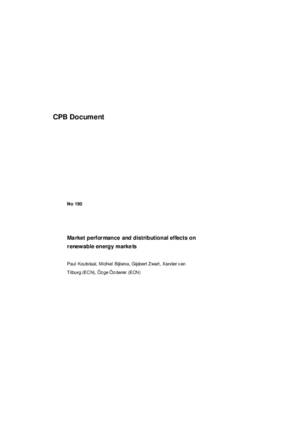Market performance and distributional effects on renewable energy markets
A renewable obligation will only be an efficient instrument if certificate markets are efficient. This requires that there is no market power and no anti-competitive behaviour on the certificate market.
If the current developments in Dutch renewable energy production continue, market power on a future renewable certificate market in the Netherlands will probably not be an issue, even if the RO should only rest on the retail market instead of on the whole electricity market.
A renewable obligation will raise the retail price for consumers, thereby reducing consumer surplus. Simulations show that the retail electricity price increases with € 30 per MWh to a level of € 104 per MWh in case of a 30% renewable target. Consumer surplus is reduced with 19% compared to the baseline scenario.
In contrast, a subsidy such as the Dutch SDE which is financed from the state budget has the effect to (slightly) lower the retail electricity price, thereby increasing consumer surplus. It should however be realised that the costs of the subsidy will indirectly affect electricity consumers through their tax payments.
